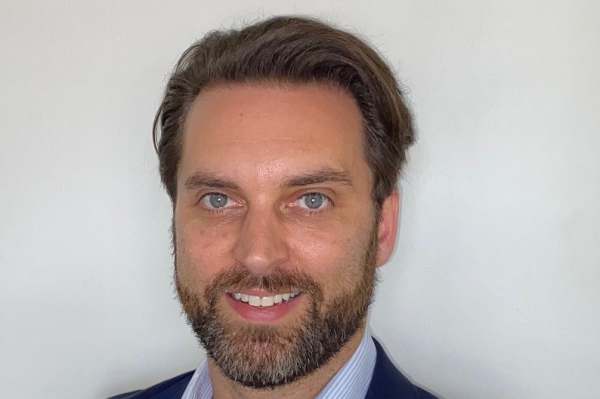The Landscape of Healthcare Recruitment in 2024

The healthcare industry is accustomed to change - whether that’s through societal pressures, technological advancements or political policy. One area of the healthcare industry that is most prone to change and advancement is recruitment, which tends to ride the latest trends to stay as agile and efficient as possible. Understanding what might lie ahead for healthcare recruitment can be a very helpful way to glean insights into the industry, such as emerging trends or potential challenges on the horizon. So in this article, we’ll take a look at the landscape of healthcare recruitment in 2024 and beyond to help you better understand this key part of the industry.
How is Healthcare Recruitment Changing?
There are several key areas where healthcare recruitment is changing, mainly thanks to technological advancements and a renewed outlook on working life. These changes are largely for the best, as they look to improve how talent is brought into the industry and utilised effectively. These changes can also benefit staff as things like work-life balance become a more prominent topic. So, let’s take a look at some of the emerging trends coming to healthcare recruitment this year:
Digital Transformation in Recruitment
The term ‘digital transformation’ has been used a lot over the past few years to describe various industries harnessing digital technology in all areas of business. The healthcare industry is typically slow to implement change, but in recruitment, this isn’t the case. Digital technology such as artificial intelligence is being used to streamline and optimise various aspects of the recruitment workflow. From automated candidate assessments to AI-driven administration, many areas of healthcare recruitment will be working more efficiently thanks to innovative technology.
Another great example of how digital transformation will likely help healthcare recruitment is through virtual interviews. By harnessing the power of video conferencing, healthcare institutions in the UK can cast a much wider net to find suitable candidates. By applying international reach to recruitment, employers can identify the top talent more readily and find the best person for in-demand roles. This could go a long way to plug gaps created by skills shortages that the industry as a whole is facing.
High Demand Roles
As we touched on above, the healthcare industry in the UK has been experiencing a skills shortage for a number of years now. This has created a substantial backlog that is impacting more than 6 million patients. Certain areas and roles in healthcare are in higher demand than others, and this is likely to be the case moving forward. Although technology has the power to help, the reality is that there simply aren’t enough skilled workers to fill the roles.
Some of the most in-demand roles in healthcare at the moment are nurses, particularly in specialist areas such as intensive care. Other roles, such as general practitioners, are also in high demand across the UK. Due to these shortages, it’s very much an employee market, with numerous positions to choose from. So if you’re considering making a switch to healthcare, or want to specialise towards a certain area of healthcare, consider the areas that are in desperate need of talent.
Harnessing Locum Healthcare Workers
As a result of the skills shortage found in healthcare, the industry as a whole is going to relying more heavily on locum healthcare workers. This isn’t a bad thing by any means, as it gives employers more flexibility to plug gaps quickly without having to bring in new, permanent staff. It’s also great news for healthcare workers too, as it gives them a better chance to enjoy the perks of locum work. Whether they’re looking for enhanced pay or a better work-life balance, locuming is a great career move that will only get more popular with time.
Moving forward, it’s going to be more common to see specialist locum agencies working closely with the healthcare industry to fill roles across the board. By working with companies like Globe Locums, employers and employees in healthcare will enjoy a better way of working. Moreover, patients will benefit too, as issues like wait times and cancelled appointments become less of a concern.
More International Hires
Brexit played a big part in changing healthcare recruitment by making it much more difficult to bring in EU nationals to work. This has resulted in more immigration from non-EU countries. In 2022, more than 73,000 healthcare workers from non-EU countries entered the UK on a skilled worker visa, more than any year prior. These numbers are likely to rise even further as the healthcare industry attempts to plug gaps and fill shortages in roles. Of note, countries such as India, the Philippines and Australia have greatly benefited from these changes as more people from these regions than ever before are coming to the UK for work. Moving forward, it’s likely that things like the youth mobility scheme will be pushed harder by the UK Government to encourage this immigration and help the healthcare industry.
A Promising Road Ahead for Healthcare Recruitment
Although the healthcare industry as a whole might be slow to change, healthcare recruitment certainly isn’t. With the rise of digital technology and widespread changes to the pool of candidates, the healthcare industry is poised to adjust and adapt in the face of adversity. The future for healthcare recruitment looks incredibly healthy, with a strong focus on international recruitment and harnessing digital transformation to optimise how recruitment happens. It’s also a great time to locum in healthcare, with more opportunities than ever before.
If you’re interested in locum healthcare roles, why not take a look at our latest vacancies at Globe Locums? Or, if you have any questions about locum work, please get in touch with our team today.

Register a Vacancy
If you’re looking to hire locum or permanent staff, we have a dedicated team of consultants available to talk through and understand your recruitment goals.





